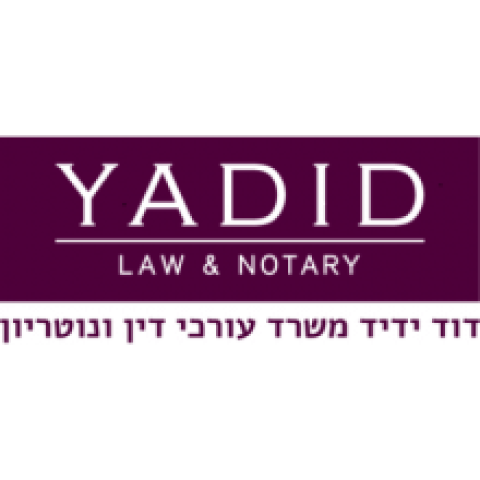Digitized Law Firm: It Is Not LegalTech but It Makes Working Much Easier
The last three decades have introduced many changes to the world of law practice. The majority of changes were induced by technological advancements, which introduced a completely new realm of tools available to law firms for improving their work. This article will try to offer technological applications which help with the management of knowledge as well as employees in the firms. The article takes under consideration the inherent nature of law practice, characterized as highly conservative and suspicious towards such changes, due to the intention for maintaining the privacy of clients, in-office compartmentalization required in many cases, and subordination to a variety of regulators.
We map the majority of changes in the following fields:
- From a world of using typewriters and typists, to a world where each advocate and intern writes and edits any documents easily, on their own computer.
- From a world where the most valuable asset of every firm was its legal library combined with the personal memory of the librarians and advocates for references, to a world where the management of computerized data enables each employee easily locate any document, making the data more flat.
- From a world where each piece of paper is kept to the degree that paper data take up a considerable portion of office space, to a world where the majority of data is kept in the firm's computer servers.
- An additional change, which we will not address in this article, is the accessibility of clients to legal knowledge.
Various tools, which we use and believe that their integration is important for modern firms:
- Clients and cases management software – there are mainly applications based on Microsoft Access, and applications based on the CRM model. Each of the methods has its advantages and flaws. There are applications designated for law firms, which manage the office through client cases, which differ from the various CRM applications which can be accommodated to a large variety of institutions who share the common basis of client management and preservation.
- Data mining ability, statistical analysis and profitability estimates from employees as well as legal fees prediction. Data mining is essential for using the "know-how" accumulated in the firm, and also for better understanding of production outputs of each of the members in the firm's advocates and employees.
- The ability of managing employee alignment in the system by giving various and separate permissions, and freedom/limitation of employees or even groups of employees regarding a specific case or certain client.
- The ability of managing documents in a specific case – while applications designated for law firms are built in such a manner that document management is their main issue of handling, the CRM based systems are usually lacking of these capacities, in this point in time.
- Documentation ability of each interaction with the client, the opposite party, contacts, the court or regulators.
- High standard notification system – a management system that is built correctly, used skillfully by the employees, can be extremely helpful with task management, and enables the achievement of a norm where no deadline comes as a surprise and no task is left behind. It may sound simple, but that is not the case, specifically when considering that the system used by the office in its entirety – advocates, associates, clerks, interns and paralegals.
- Interfacing with external systems – our position is that a clients & cases management system should be able to interface to all of the other systems the office is using – scanner, printer, mail client, employees attendance log, and maybe even to the coffee machine (ok that last one is a joke, we have yet to find a reason for interfacing our coffee machine to our system, but who knows what the future hold). Moreover, it is preferred that this system will have the ability of interfacing with external systems, such as the system in charge of receiving messages from the court and any other system aimed for the various regulators.
- Management of financial accounting for the client – accumulation and monitoring of all expenses and billings in the client's matter, as well as reminders and management of debtors and their payments.
- Telecommunication system – beyond the reducing of costs of telephonic expenses, a virtual telephone switchboard has many advantages, such as calls log available anytime, caller id and automatic directing to the client's case and the staff member who is handling that client. It is important to make sure that the system is in compatibility with the requirements of the law and the ethics of the profession of advocacy.
- Smart printer/scanner – this does not refer to an "all in one" printer but rather to an appliance which interfaces with the rest of the systems in the office, and enables operation and monitoring of various actions in the work space. The influence of the right appliance with the right application is critically pivotal for transforming the office to minimal paper consumption. The ease of scanning for the employees will have a direct and immediate positive impact on this issue, which will almost occurs by itself.
- The ability that we believe is most important is that of scanning the large amount of documents received by the office, directly to the relevant case in the data management system. The final goal is to achieve a paperless office. Admittedly, the goal of paperless office is currently far from realization, but the volume of paper usage has been decreasing through the years, as many offices are gradually accommodating themselves to the world of reduced paper and increased digital documentation, a tendency that is only expected to increase.
- An additional ability, is the function of billing a case according to actual prints. This enables to bill, where customary, based factual, rather than assumptive, prints data.
- Almost needless to mention – the ability of fax-to-mail is still relevant, even as we approach the end of the second decade of the 21st century.
- Designated email boxes – whether using Gmail for Business or Microsoft 365, the advantages of working via an email system not based on a computer with local server, are enormous. Among the advantages we can count the ability to hold all the e-mails, from all the staff members of the firm, concerned one case, at the specific case. We can also count the backup, approvals system options and search functions who are superior to the old private e-mail system.
- Online legal data bases – In this matter, advocates all around the world have already adopted the possibility of obtaining vast and updated information, thus rendering the need of oversized office libraries which are in constant need of updates. In fact, the books that used to adorn the shelves of firms, became no more than a compelling decoration (because that is what clients expect to behold when attending a law firm), but had lost any practical relevance. At this point, it is important to note that the future is in software and websites, in which advocates, followed by clients, would be able to input legal queries and receive solutions from the software, which will act as some sort of robotic court clerk and in the more distant future perhaps even a robotic advocate. The professional term for this field is "Legal-Tech", and it has been developing for the good part of the last five years.
To summarize,
This article was written based on our experience accumulated due to the requirements, which arose in our firm on through the years. We have found that every once in a while, there is a need for specific additional software development done by external computer professional. Unfortunately, the requested development does not always correlate with the needs and expectations. On the other side, a different specification in the system has brought a considerable reduction of labor hours of the firm's staff, either of a one-time nature, or of an accumulative nature.
We believe that every office should always take note of how technology and accessories may be used, of which costs are gradually decreasing and efficiency ever - increasing.
Do you want more information?
 Adam Yadid
Adam YadidGraduated from the Law School of the Interdisciplinary Center in Herzliya, double-majoring in law and business administration, with a specialty in financing.
Adv. Yadid specializes in commercial litigation, immigration and consultation to corporations and organizations.

